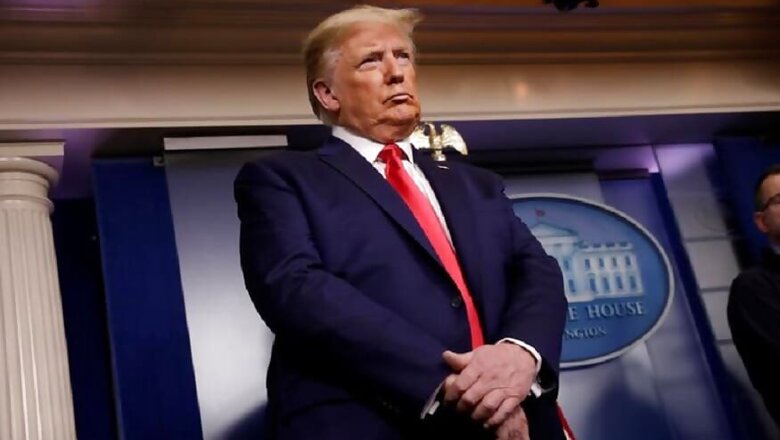
views
US House lawmakers made history Friday by voting for Washington to become the nation's 51st state, but the move, a push for equal voting rights for the capital's residents, is doomed in the Senate.
A small chorus of cheers went up as the measure passed along party lines, with all but one Democrat in support and every voting Republican opposed.
"For more than two centuries, the residents of Washington, DC have been denied their full right to fully participate in our democracy" despite paying taxes, serving in the military and operating businesses, House Speaker Nancy Pelosi said before the vote.
"Today, we will bring our nation closer to the founding ideals that all are created equal and all deserve a say in our democracy."
More than 705,000 Americans live in the District of Columbia, a Democratic stronghold with a population greater than two states, Wyoming and Vermont, and comparable to two others.
Democratic lawmakers frame the DC statehood bill as an overdue remedy to disenfranchisement perpetuated since Congress made Washington the nation's permanent capital in 1790, and a longstanding civil rights issue for a city that's nearly 50 percent black.
The statehood vote is the first in Congress since 1993. Never has such a bill -- appropriately titled HR-51 -- cleared the House or Senate.
"Congress has two choices: it can continue to exercise undemocratic autocratic authority over" Washington, "or Congress can live up to this nation's promise and ideals and pass HR51," said Washington's House delegate Eleanor Holmes Norton, who does not have floor vote privileges and therefore was unable to cast a vote for DC statehood.
Under the Democratic proposal, Norton said, a small federal district would remain, encompassing government buildings, Congress, monuments, the National Mall area and the White House.
Republicans who oppose the effort say it runs counter to the intent of the framers of the US Constitution who sought to create a unique federal district not influenced by any state.
"Washington DC was set apart as a seat of government, not as a part of the federation of states that the constitution grants us," Republican Jody Hice said.
Washington officials have long bristled at Congress's role in the capital's affairs, as the US Constitution grants Congress the right to exercise control over the city's business "in all cases whatsoever."
Maryland and Virginia ceded land in the 1780s for the creation of a federal capital along the Potomac River.
But unlike other American citizens, Washington residents have never had voting representatives in Congress, leading the city to print the famous, colonial-era battle cry, "Taxation without representation," on its vehicle license plates.
In an example of unwelcome federal intervention, the president this month sent federal forces to clear out protesters near the White House without coordinating with Washington Mayor Muriel Bowser.
The new state would be known as Washington, Douglass Commonwealth, taking the names of the nation's first president George Washington and prominent black abolitionist Frederick Douglass.
The movement has some high-profile backers. "DC should be a state. Pass it on," tweeted Democrat Joe Biden, who is challenging Donald Trump in November's presidential election.
But House Republican Mo Brooks likened the statehood effort to a power grab by Democrats seeking "two more guaranteed leftwing senators."
Republicans float a concept known as "retrocession," in which Washington would return its residential land to Maryland, which would allow city residents to vote for senators and have a voice in Congress.
Statehood is highly unlikely to succeed for now. Trump is opposed, and Republicans who control the Senate have said they have no intention to bring it to a vote.
The last time the nation expanded was 1959, when Alaska was admitted as the 49th state on January 3 and Hawaii became the 50th state seven months later.




















Comments
0 comment